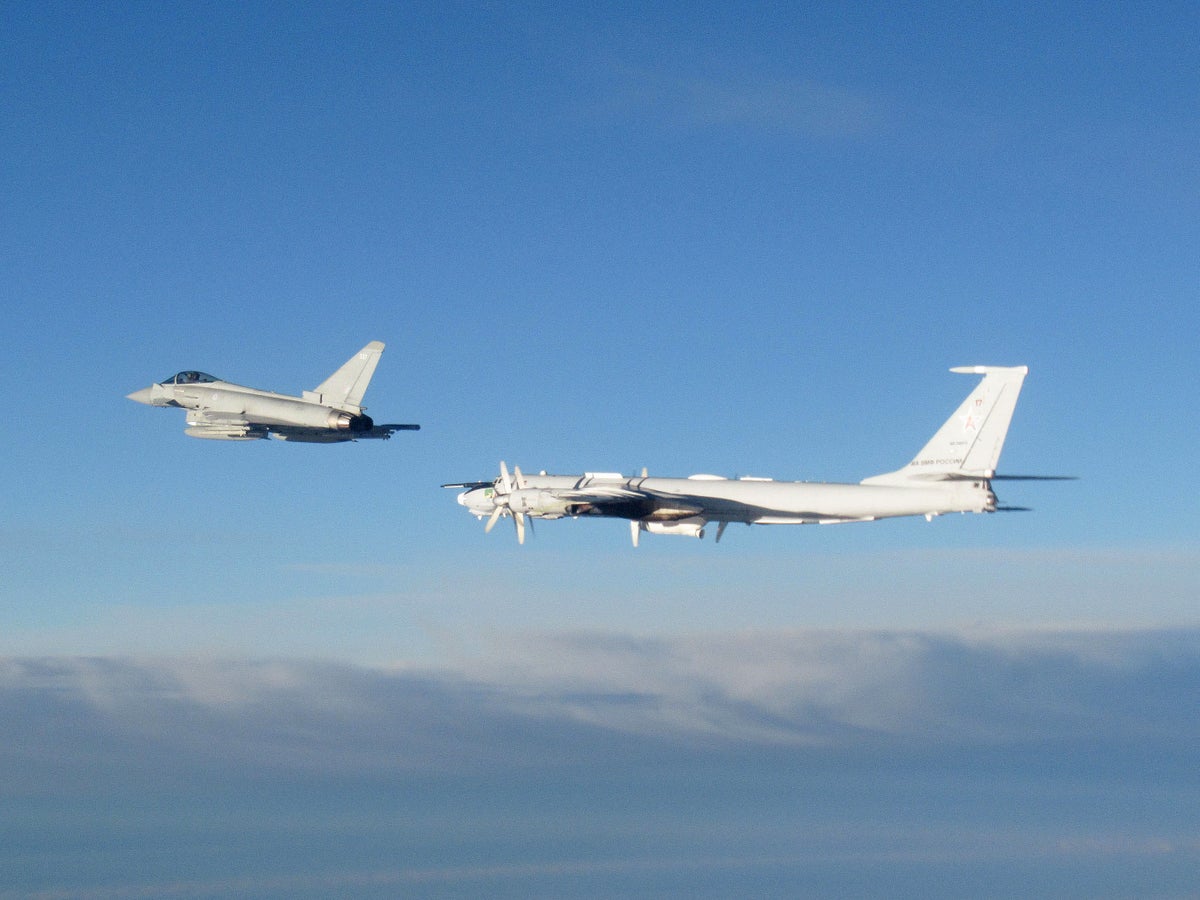
Royal Air Force jets intercepted Russian bombers just north of Scotland, the government has said.
Typhoon fighters were scrambled to intercept two Russian long-range maritime patrol bombers that were travelling north of the Shetland Islands in Scotland in the early hours of Monday.
The jets, which were launched from RAF Lossiemouth in Moray, monitored the Russian Tu-142 Bear-F and Tu-142 Bear-J aircraft – used for reconnaissance and anti-submarine warfare – as they passed north of the UK.
A Voyager tanker was also scrambled and remained airborne for the duration of the mission to offer air-to-air refuelling, according to the Ministry of Defence.
Armed forces minister James Heappey said: “RAF crews at Lossiemouth maintain a constant watch over UK airspace and are always ready to take action at a moment’s notice to keep our country safe.
“Pilots launched in their Typhoon jets to intercept two Russian long-range bombers this morning, monitoring them as they passed north of the Shetland Islands, ready to counter any potential threat to UK territory.”
The lead RAF Typhoon pilot in Monday’s intercept, whose name was not given by the MoD, said the “adrenaline kicked in” when the alarm call came “in the early hours of the morning”.
Russian military aircraft entering the UK Flight Information Region, the UK’s controlled zone of international air space, can pose a hazard to other aircraft, the MoD added.
An official from the ministry said such Russian aircraft often do not talk to air traffic control and refuse to “squawk”, which refers to a broadcast code used by pilots to ensure they are visible to other air users and air traffic controllers on the ground.
At no point did the Russian aircraft enter UK airspace, and the Typhoons have now returned to their base.
These incidents are known as quick reaction alerts and involve Typhoon jets shadowing rogue aircraft if they approach UK airspace.
In November 2021, Typhoons were launched to intercept a pair of Russian Tu-160 bombers as they were operating within Nato’s air policing area.
The lead RAF Typhoon pilot in Monday’s intercept, whose name was not given by the MoD, said the ‘adrenaline kicked in’ when the alarm call came ‘in the early hours of the morning’— (MoD/Crown Copyright/PA)
British pilots also recently led Nato’s air policing mission in Estonia, where more than 50 similar air intercepts were carried out, the government added.
The latest operation came as the Danish air force intercepted two Russian bombers that were identified over Denmark and flying towards the area that the Netherlands monitors for the Nato military alliance, the Royal Netherlands Air Force (RNLAF) said on Monday.
It added that Dutch F-16s were called into action on Monday morning but the Russian bombers were intercepted before they could enter Dutch Nato airspace and have now turned back.
A spokesperson for the RNLAF said that planes are intercepted if they do not have a unique identifying code, did not provide a flight plan, and if there is no two-way conversation.
They also said that it’s not rare for Russian planes to violate a European country’s airspace or approach it.
Earlier on Monday, Russia said its strategic bombers had carried out routine flights over international waters in the Arctic.
Additional reporting by agencies







